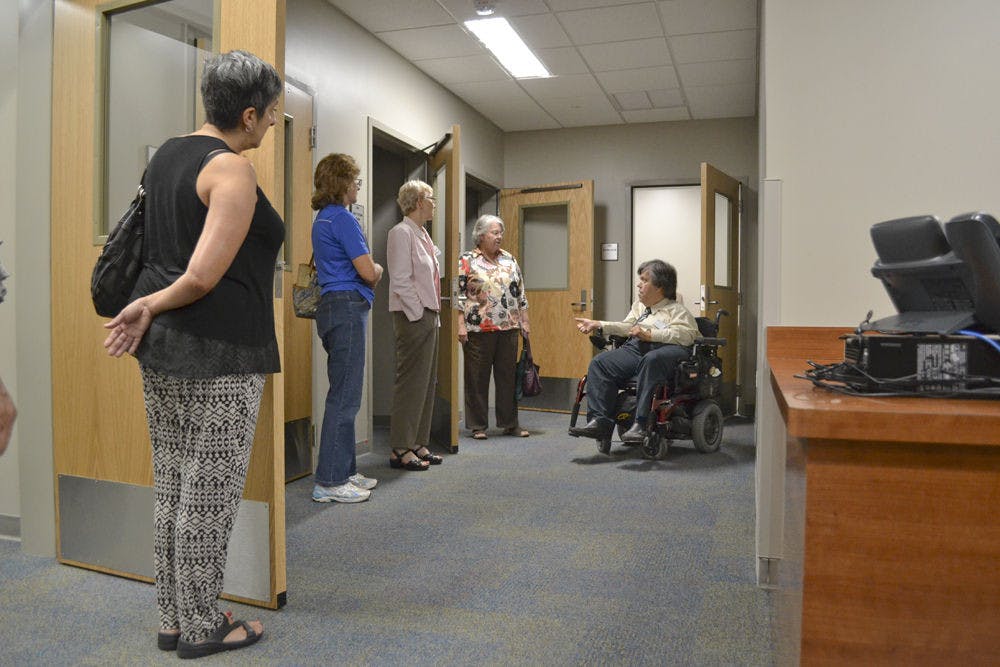For the next three years, UF researchers will use virtual reality to find ways to make existing buildings more accessible to those with disabilities.
The U.S. Department of Housing and Urban Development granted $531,000 in the Fall to a team of researchers and scholars in the College of Design, Construction and Planning, College of Public Health and Health Professions and Institute of Food and Agricultural Sciences, said Randy Cantrell, an assistant professor and co-investigator working on the project.
They will begin their research this year to work on designs that homebuilders can use to modify housing, such as duplexes, to make them more accessible and affordable, he said.
“We’re going to have an industry advisory committee that we choose,” Cantrell said. “We’ve already got about 20 members from industry, and they’re going to consult with us, and they’re going to help us pick the handicaps that are probably most prevalent in HUD housing.”
The university is one of three institutions to have received the grant, including the Home Innovation Research Labs (formerly the National Association of Homebuilders Research Center), which Cantrell used to work for, he said. UF received the grant because of their solid proposal and the amount of senior faculty involved.
“(The Home Innovation Research Labs will) build those rooms with mockup modifications, and they’ll tear them down and build up a new one,” Cantrell said. “The difference between them and us is that they’re physically going to do it, and we’re virtually going to do it.”
Though UF researchers won’t be doing any physical evaluations and mockups like the Home Innovation Research Labs, they will use virtual reality with participants who have age-related disabilities in the study, Cantrell said.
Nichole Campbell, a research scholar in the UF Shimberg Center for Housing Studies, said participants will use virtual reality to feel like they’re inside the designs that the researchers create. They will wear haptic-sensor gloves, which recreates the sense of touch by using vibrations or motions, to make the participant feel like they’re touching something in the virtual space.
“The idea with good design is not that you specialize it for someone with a specific disability, but it’s quite the opposite,” she said. “It’s that you make it more usable by the greatest number of people possible.”
Correction: This story has been updated to reflect that the grant was also awarded to Home Innovation Research Labs, not the National Association of Homebuilders.
Rick Nelson (right), 57, advisor and educational training specialist at the Disability Resource Center, explains the functions of testing rooms to visitors during the DRC open house event at Cypress Hall Aug. 26, 2015.






